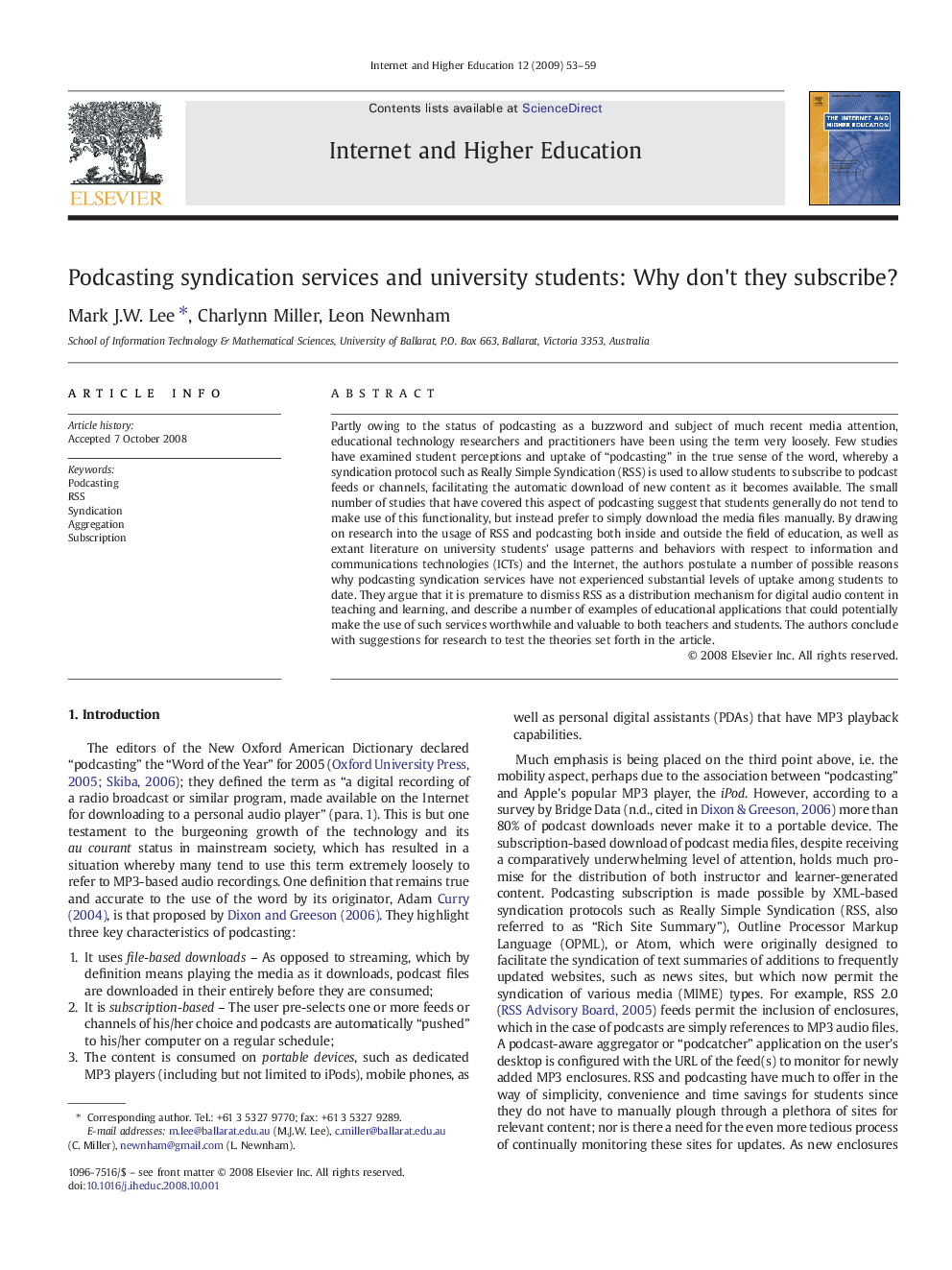| Article ID | Journal | Published Year | Pages | File Type |
|---|---|---|---|---|
| 357808 | The Internet and Higher Education | 2009 | 7 Pages |
Partly owing to the status of podcasting as a buzzword and subject of much recent media attention, educational technology researchers and practitioners have been using the term very loosely. Few studies have examined student perceptions and uptake of “podcasting” in the true sense of the word, whereby a syndication protocol such as Really Simple Syndication (RSS) is used to allow students to subscribe to podcast feeds or channels, facilitating the automatic download of new content as it becomes available. The small number of studies that have covered this aspect of podcasting suggest that students generally do not tend to make use of this functionality, but instead prefer to simply download the media files manually. By drawing on research into the usage of RSS and podcasting both inside and outside the field of education, as well as extant literature on university students' usage patterns and behaviors with respect to information and communications technologies (ICTs) and the Internet, the authors postulate a number of possible reasons why podcasting syndication services have not experienced substantial levels of uptake among students to date. They argue that it is premature to dismiss RSS as a distribution mechanism for digital audio content in teaching and learning, and describe a number of examples of educational applications that could potentially make the use of such services worthwhile and valuable to both teachers and students. The authors conclude with suggestions for research to test the theories set forth in the article.
